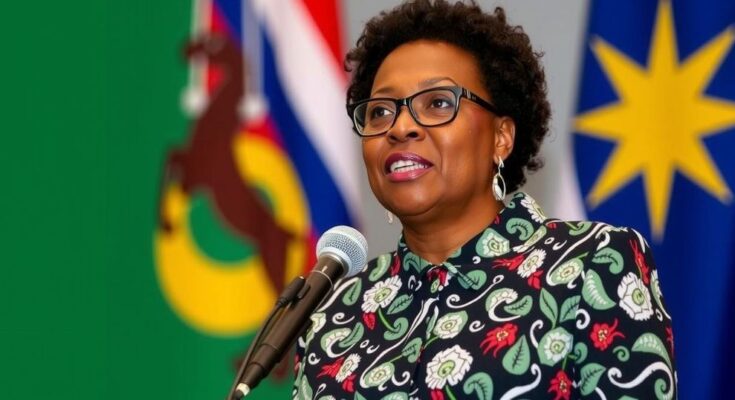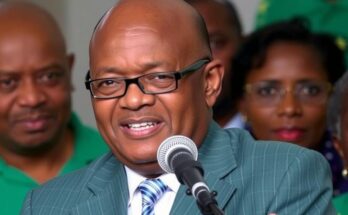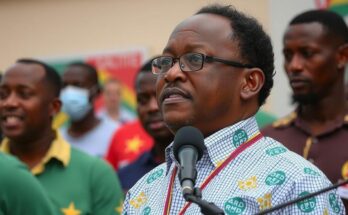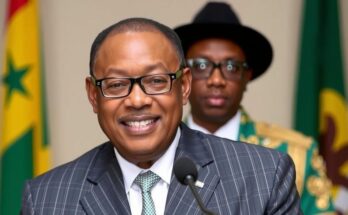Namibia’s presidential election, featuring Vice President Netumbo Nandi-Ndaitwah, has been marred by technical issues, including ballot shortages, prompting a three-day extension. The opposition has contested the legality of these measures, threatening a legal challenge against the results. With Nandi-Ndaitwah receiving 56% of the partial count, she may become the first female leader of Namibia, amid growing public dissatisfaction with the ruling party’s governance following years of economic hardship.
In the recent presidential election in Namibia, Vice President Netumbo Nandi-Ndaitwah, representing the ruling South West Africa People’s Organization (SWAPO), has taken the lead amidst significant technical difficulties. The election, held on November 27, 2024, faced issues such as ballot paper shortages, which necessitated a three-day extension of the voting period. Opposition parties have dismissed the results, alleging that the extension was unlawful and detrimental to the electoral process. With partial results indicating Nandi-Ndaitwah secured approximately 56% of the vote from the 220,000 ballots counted out of 1.4 million, she is poised to potentially become Namibia’s first female president. Her primary competitor, Panduleni Itula from the Independent Patriots for Change, garnered around 27% of the votes thus far.
As Namibia’s elections have historically been seen as relatively smooth, the current challenges arise at a time when public frustration is mounting over economic issues such as high unemployment rates. The SWAPO party, in power since Namibia’s independence from South Africa in 1990, faces increasing scrutiny over allegations of government corruption. Leaders of opposition parties, including the Popular Democratic Movement’s McHenry Venaani, have voiced their commitment to contesting the election results in court to uphold the democratic integrity of the nation. The Electoral Commission has stated that there will be no rerun of the election despite calls for one from opposition entities. The situation reflects a broader context of political discontent in southern Africa, where several governing parties have encountered significant electoral challenges this year.
As Namibia approaches its presidential election, it has exhibited a democratic tradition since gaining independence in 1990. The South West Africa People’s Organization (SWAPO) has been the ruling party and is credited with leading the nation through substantial periods of growth and development. However, recent years have seen a rise in economic distress, characterized by high unemployment and corruption scandals, leading to public dissatisfaction with the government. This growing discontent has resulted in tougher competition in the political arena, particularly from opposition parties like the Independent Patriots for Change, which actively challenge the SWAPO government’s policies and electoral processes. The current election, marked by technical issues, has brought these tensions to the forefront, placing the integrity of Namibia’s democracy under scrutiny.
The recent presidential election in Namibia, with Vice President Netumbo Nandi-Ndaitwah leading in the early results, has been overshadowed by significant technical issues and opposition claims of illegitimacy. With public discontent over economic challenges and allegations of corruption against the ruling party, the legitimacy of this election is now in question. As opposition leaders prepare to challenge the election results in court, Namibia’s democratic credentials face an unprecedented test. It remains to be seen how the situation will unfold in the coming days, as the nation anticipates the final vote counts and potential legal battles. The outcome of this election may signal a pivotal change in Namibia’s political landscape, especially regarding the future of SWAPO’s governance amidst rising discontent among the populace.
Original Source: apnews.com




